
Ragtime, also spelled rag-time or rag time, is a musical style that had its peak from the 1890s to 1910s. Its cardinal trait is its syncopated or "ragged" rhythm. Ragtime was popularized during the early 20th century by composers such as Scott Joplin, James Scott, and Joseph Lamb. Ragtime pieces are typically composed for and performed on piano, though the genre has been adapted for a variety of instruments and styles.

Scott Joplin was an American composer and pianist. Dubbed the "King of Ragtime", he composed more than 40 ragtime pieces, one ragtime ballet, and two operas. One of his first and most popular pieces, the "Maple Leaf Rag", became the genre's first and most influential hit, later being recognized as the quintessential rag. Joplin considered ragtime to be a form of classical music meant to be played in concert halls and largely disdained the performance of ragtime as honky tonk music most common in saloons.
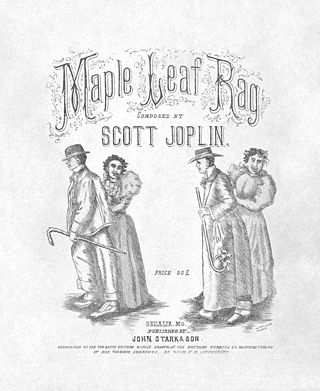
The "Maple Leaf Rag" is an early ragtime musical composition for piano composed by Scott Joplin. It was one of Joplin's early works, becoming the model for ragtime compositions by subsequent composers. It is one of the most famous of all ragtime pieces. Its success led to Joplin being dubbed the "King of Ragtime" by his contemporaries. The piece gave Joplin a steady if unspectacular income for the rest of his life.
Richard “Dick” Zimmerman is a ragtime performer, historian, author and producer. He is regarded as being one of the key figures responsible for the worldwide revival of ragtime. Zimmerman is the first pianist to have recorded the complete works of Scott Joplin and in 1987 was awarded the first place prize “Champion Ragtime Performer of the World”. Zimmerman was technical advisor for the film Scott Joplin. He is a founder of the "Maple Leaf Club", and is the editor of its publication, "The Rag Times". Zimmerman is also a professional magician. He has contributed many signature illusions to the field of magic and has acted as consultant for such magicians as David Copperfield.
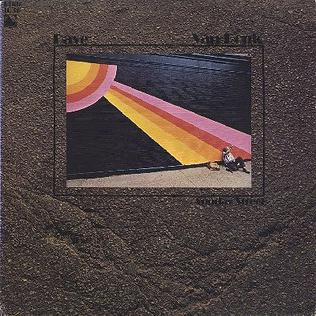
Sunday Street is an album by American folk and blues singer Dave Van Ronk, released in 1976.

"Bethena, A Concert Waltz" is a composition by Scott Joplin. It was the first Joplin work since his wife Freddie's death on September 10, 1904, of pneumonia, ten weeks after their wedding. At the time the composer had significant financial problems; the work did not sell successfully at the time of publication and was soon neglected and forgotten. It was rediscovered as a result of the Joplin revival in the 1970s and has received acclaim from Joplin's biographers and other critics. The piece combines two different styles of music, the classical waltz and the rag, and has been seen as demonstrating Joplin's excellence as a classical composer. The work has been described as "an enchantingly beautiful piece that is among the greatest of Ragtime Waltzes", a "masterpiece", and "Joplin's finest waltz".

Solo is an album by jazz pianist Oscar Peterson, recorded in concert in 1972 and released in 2002.

Clifford Brown with Strings is a 1955 studio album by trumpeter Clifford Brown.
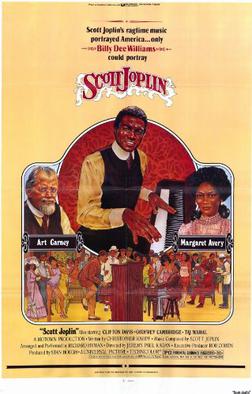
Scott Joplin is a 1977 biographical film directed by Jeremy Kagan and based on the life of African-American composer and pianist Scott Joplin. It stars Billy Dee Williams and Clifton Davis. Its script won an award from the Writers Guild of America in 1979. Eubie Blake makes an appearance in the movie.

Piano Rags by Scott Joplin is an album by Joshua Rifkin consisting of ragtime compositions by Scott Joplin, released by Nonesuch Records in 1970. The spine of the original album and various compact disc reissues render the title as Scott Joplin: Piano Rags.

Short Life of Barbara Monk is an album by the American jazz pianist Ran Blake featuring saxophonist Ricky Ford recorded in 1986 and released on the Italian Soul Note label. The album's dedicatee (1953–84) died from cancer and was the daughter of the jazz pianist Thelonious Monk.

Epistrophy is an album of solo piano performances of material written by, or associated with, Thelonious Monk by the American jazz pianist Ran Blake recorded in 1991 and released on the Italian Soul Note label.

The Smithsonian Collection of Classic Jazz is a six-LP box set released in 1973 by the Smithsonian Institution. Compiled by jazz critic, scholar, and historian Martin Williams, the album included tracks from over a dozen record labels spanning several decades and genres of American jazz, from ragtime and big band to post-bop and free jazz.
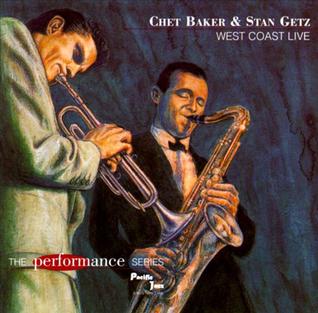
West Coast Live is a live album by trumpeter Chet Baker and saxophonist Stan Getz which was recorded in California in 1953 but not released until 1997, on the Pacific Jazz label.
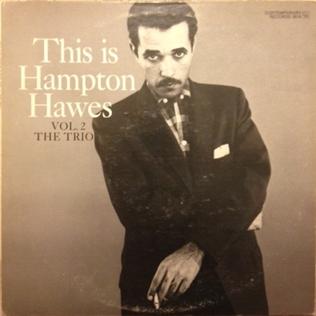
This Is Hampton Hawes is an album by pianist Hampton Hawes recorded at sessions in 1955 and 1956 and released on the Contemporary label.

This Is Ragtime Now! is an album by American jazz pianist Hank Jones featuring interpretations ragtime tunes recorded in 1964 for the ABC-Paramount label.

The Complete Roost Recordings is a 1997 compilation 3-CD set of sessions led by saxophonist and bandleader Stan Getz recorded for the Roost Records label between 1950 and 1954. The compilation includes material previously released on Getz's Roost LPs The Sound, The Getz Age, the two volumes of Stan Getz at Storyville and the album with guitarist Johnny Smith - Moonlight in Vermont along with alternate takes and previously unreleased performances.

Solo Piano is an album by jazz pianist Tommy Flanagan. It was recorded in 1974 and released in 2005 by Storyville Records.
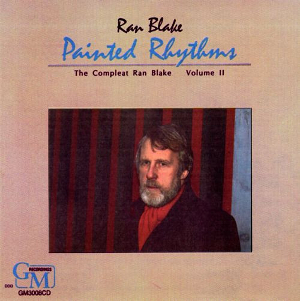
Painted Rhythms: The Compleat Ran Blake, Volume 2 is a solo piano album by Ran Blake. It was recorded in 1985 and released by GM Recordings.


















